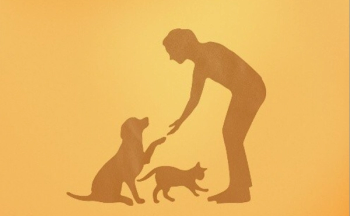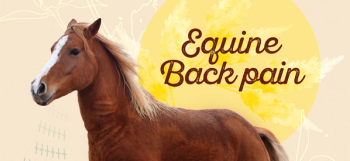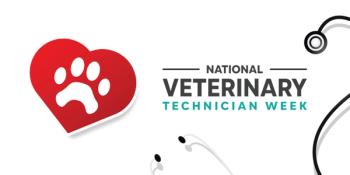
An Interview with Dr. Kevin Fitzgerald
This practitioner, author, speaker, TV star, and comedian says veterinarians need to maintain the public's respect by examining their priorities. "We must stay true to the basis of our profession, which is to relieve suffering. It is a privilege to do what we do, not our right."
Kevin T. Fitzgerald, PhD, DVM, DABVP (canine and feline practice), practices at VCA Alameda East Veterinary Hospital in Denver. Besides being featured on Animal Planet's Emergency Vets and E-Vet Interns, Dr. Fitzgerald is an adjunct professor at the University of Denver, has written numerous articles and textbook chapters on topics ranging from emergency medicine to reptile medicine, and performs as a stand-up comedian.
What is the most exciting change you've seen in veterinary medicine?
The blossoming of the specialties and their availability to the pet-owning American public. Also, the development and use of new technologies such as ultrasound, CT, and MRI, which have added tremendously to our accuracy.
Dr. Fitzgerald with Caesar Jr., a kitten rescued from Hurricane Katrina that has now been adopted.
Who inspired you most in your career?
Dr. Robert A. Taylor influenced me the most because of his work ethic and his vision for the profession—and because he expects so much of you.
What was the best professional advice you ever received?
Never underestimate the power of a good physical exam.
Who was your most memorable patient?
All of our patients are memorable, but the working animals have always been special to me: Jack, the guide dog, who was so kind, gentle, and patient with his blind owner; little Erik who visits the sick every week; or Freckles, the bunny, who sits with the dying at my mother's hospice.
What would you advise new graduates?
Spend their first year with the heaviest caseload so they can broaden their skills. Get a hobby that has nothing to do with veterinary medicine. And, my personal motto, "Don't fight the mountain, slide on the snow."
What would you have liked to do if you hadn't become a veterinarian?
If I hadn't become a veterinarian, I would still be bouncing for bands and thumping heads. Thank God I don't have to!
Are you a cat person or a dog person?
Anything with a heartbeat.
What book would you recommend?
E.O. Wilson's new book The Creation is a plea at one minute to midnight for the endangered species of our planet. The future generations will not thank us if we sit by and do nothing.
Dr. Fitzgeralds thoughts on the euthanasia problem
What favorite musicians or songs would be in your jukebox?
Music should inspire us and lift us. It should make you want to get up and shake it. My personal jukebox would have plenty of the Rolling Stones, The Flying Burrito Brothers, James Brown, The Meters—if you fake the funk, your nose is going to grow! Also, Irish music—my name is Fitzgerald—like The Saw Doctors or the Young Dubliners.
What part of your work do you enjoy most?
I enjoy the science and variety of general practice—one day a new puppy exam and the next day placing tracking radio transmitters in rattlesnakes.
What do you consider the greatest threat to the profession?
Losing the trust and respect of the public. Veterinarians are still well-regarded by Americans. We can lose this respect by placing charges first and losing sight of what we do. We must stay true to the basis of our profession, which is to relieve suffering. It is a privilege to do what we do, not our right.
Which animal health needs are currently unmet?
There is a growing proportion of the population that cannot afford veterinary care. It will be a challenge to keep veterinary care affordable and to avoid the quagmire of our human medicine counterparts.
What changes in veterinary medicine do you hope will occur in the next 100 years?
I hope we will see veterinarians continue to be integrally involved in the fabric of the communities they live in, to make significant contributions to the conservation of all animal life on our planet, and to provide a voice for the voiceless creatures we live among.
Since 2000, Dr. Fitzgerald has been placing radio transmitters in prairie rattlesnakes in a study with the Denver Zoo, examining the biology and behavior of these animals.
What is your sci-fi prediction for veterinary medicine?
There is a big and ugly virus coming. It will be airborne and animal-transmitted . It will make the influenza outbreak of 1918 look like a pillow fight. I predict that because of our training, veterinarians will make a big contribution and help save the day.
What is the greatest achievement of your career?
Passing the American Board of Veterinary Practitioners exam for canine and feline practice. We must continuously try to grow, to learn, and to play above our natural skill set.
What makes a good veterinarian?
A good veterinarian is a good listener, a keen observer, and a lifelong student of the profession. Veterinary medicine is a harsh mistress—she expects so much and sets the bar so high. But if we give into it with all of our hearts, the rewards are unfathomable. What a privilege to do what we do!
Newsletter
From exam room tips to practice management insights, get trusted veterinary news delivered straight to your inbox—subscribe to dvm360.






